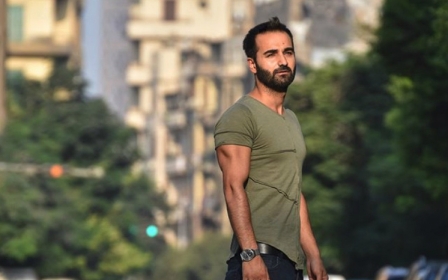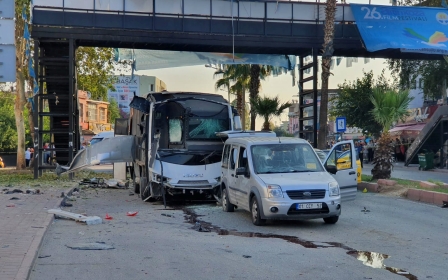Istanbul quake raises fears over preparedness for future 'mega quake'

A magnitude 5.8 earthquake that hit west of Istanbul on Thursday kept thousands of people awake as many tried to sleep in the remaining few public parks scattered around the city.
More than 40 people were slightly injured and a couple of hundred buildings lightly damaged in the quake - yet it struck a nerve, reminding everyone of the deadly magnitude 7.4 Kocaeli earthquake that killed more than 17,000 people in 1999.
The Kandilli Observatory and Earthquake Research Institute pointed out that observers were correct to link Thursday's quake to the one in 1999, pointing out “such an event didn’t occur in the last 20 years”.
Many scientists have warned that a bigger earthquake is imminent, whether in the next week or in the next 10 years.
The quake raised fears over whether Istanbul was ready for a "mega quake", one of magnitude 7 or higher, which could decimate Istanbul. Were there enough measures in place to take care of hundreds of thousands of people who would be out in the streets in a city of 15 million people?
New MEE newsletter: Jerusalem Dispatch
Sign up to get the latest insights and analysis on Israel-Palestine, alongside Turkey Unpacked and other MEE newsletters
Lack of places to gather
Footage showing thousands of people standing in a very small public park in the district of Gungoren went viral on social media.
“The only [earthquake] assembly area in Gungoren, where 50,000 people live, is a children’s park,” the left-wing Yol TV reported.
Istanbul mayor Ekrem Imamoglu, who was elected in June with the backing of a coalition of opposition parties, told a TV station that there were only 77 out of 470 large assembly areas left in Istanbul following the construction boom that began in 1999.
Pictures of Istanbul that show large areas of cement constructions without a green space that could host residents during an earthquake have been shared on Twitter. A user comments: "Irrational"
“We have 2,864 parks and similar areas for assembly, for example, however they don’t meet the physical criteria [for a quake]," he said.
"In total we have 10,022 areas, including school yards - our city is in serious trouble when it comes to assembly areas."
The Turkish government has supported plans to demolish and rebuild thousands of buildings since 1999 under a plan called “urban transformation”.
Buildings at risk
Yet experts say Istanbul has more to do. A report by CNNTurk earlier this month said that over 25,000 buildings were at risk and plans to demolish them were underway.
Another report put the number at over 30,000 and said between 150,000 to 500,000 people could die in a worst case "mega quake" scenario.
Telecommunications infrastructure was also proven to be weak, with many phone users cut off for hours after the quake.
Prominent journalist Fatih Altayli criticised the cell phone operators for not being able to provide service to its customers.
“For years you have charged us thousands of liras, yet when we needed them the most, all of them failed. For hours no one could reach anyone,” he said, speaking on the Haberturk news channel on Thursday night.
Turk Telekom, a private phone and internet company in which the Turkish government has shares, was unable to restore service for most of its customers until late at night.
General manager of the Kandilli Observatory, Haluk Ozener, was grim in his assessment of the chances of a mega quake, in comments that were broadcast live by all news channels on Friday.
"I don't know when [the mega quake] would happen. But I feel we are coming to an end," he said.
"We have to take necessary measures immediately and adapt ourselves to the reality that Turkey is a country of earthquakes."
Middle East Eye delivers independent and unrivalled coverage and analysis of the Middle East, North Africa and beyond. To learn more about republishing this content and the associated fees, please fill out this form. More about MEE can be found here.




